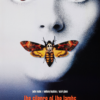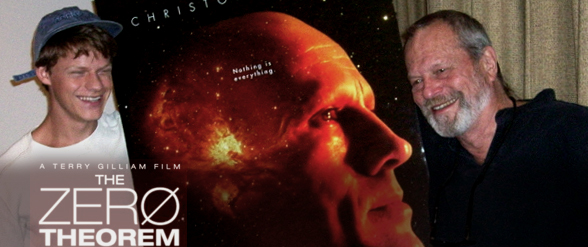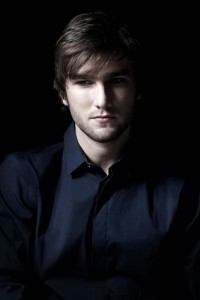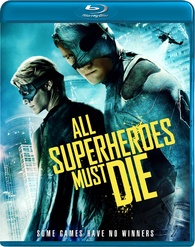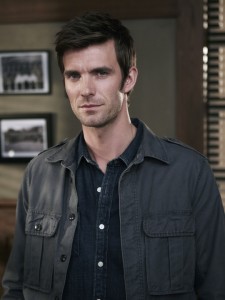Now available on VOD and in limited theatrical release, Terry Gilliam returns to his Brazil-dystopic roots with Zero Theorem. The highly energetic director and member of Monty Python gleefully joined young actor Lucas Hedges to discuss the film at length in New York.
Zero Theorem finds Qohen Leth (Christoph Waltz) in a neon-lit Orwellian nightmare. He is a cog in a massive corporate machine, Mancom, who is desperately awaiting a phone call that will reveal the meaning of his life. Counterproductively his menacing boss, referred to simply as Management (Matt Damon) charges Qohen with proving the Zero Theorem which states that the entire universe will eventually collapse in on itself rendering all existence meaningless.
While Zero Theorem arguably completes a trio of dystopian films after Gilliam’s own Brazil and 12 Monkeys, it now joins a host of modern future-set films that are increasingly Orwellian or apocalyptic rather than hopeful, I asked Gilliam what he thought of this trend of humanity not exactly looking towards The Future as idealized. The director cheerfully threw his arms open and “defended” Zero Theorem’s busy, candy-colored vision of the future:
Terry Gilliam: “This is not a dystopia! It’s Utopia. It’s a wonderful world! C’mon! Everybody’s out there, they’re dressed smartly, they got a lotta color. They’re bouncing around the place, cars are zipping back and forth–Shopping is 24 hours a day, 7 days a week–what more do you want?! I mean, the workplace, Mancom is FUN. Roller blades, scooters, zippy clothes, lots of primary colors. It’s a fantastic place. There’s only ONE guy who’s the dystopic element [laughs], miserable guy, called Qohen. And he needs a kick in the ass. And [Lucas] is one of the kicks!”
Lucas Hedges: “Yes.”
Gilliam: “It’s really that. I mean everyone keeps referring to it as dystopia. If you think the world we’re living in now is a dystopia, then you may be right! But we’ve been looking forward to this time for so many years! We got all the goodies.”
Hedges: It’s a matter of what perspective we see it from. And we see it from Qohen’s perspective and he has a–I guess his perspective is very much nihilistic and dystopic and sad.
Gilliam: “That’s really it. He’s the odd man out.”
Hedges: “I’m sure there’s a way of looking at the world we’re living in now from a certain perspective that makes our world look dystopic. I mean, maybe it is or maybe it isn’t but it depends on whose eyes you see it from.”
Gilliam: “I mean my tendency in films is to see the less good things in society. And the world we’re living in. Because at least those are the things you can criticize and possibly comment on and possibly it might change something in some small ways. Not likely [laughs] but we can pretend we have some potency in our ability to help change the world. [Lucas has] got to believe things like this . He’s got a whole life ahead of him, I’m old, I know the truth! [Laughs]”
Gilliam later elaborated on the world as it is today, where the amount of clutter is not exactly far off from his designs in Theorem.
Gilliam: “My complaint, it seems we’re becoming more and more infantile in the fact that ‘Oh! there’s something interesting! I’ve got to put that in my mouth!’ We don’t, but it’s effectively that ‘I WANT IT NOW’ not, I’m not going to work towards it, I’m not gonna wait. I need it now. And that’s in fact infantile. But that’s what we’ve become. I mean a lot of the film is a resistance to that, to escape it. I mean for me, coming to New York, it’s like Qohen going out his front door. I mean it’s just like WHAT?! In London we’re overwhelmed with stuff but it’s provincial and pissy-small compared to walking into Times Square.
And you think, ‘what is this about?’ and where do we fit in to it. I mean are we just these little dots that connect around the way? Are we just becoming social insects like worker bees? You know our job is to keep tweeting and connecting, spreading those pheromones, they sort of go through the ether as opposed to antenna going [wiggles fingers at Lucas]…So nobody really has to have an individual opinion, people are sort of constantly communicating ‘Should I say that? Is that right? Have I gone too far? Have I offended? Am I rude?’ All these words keep coming up and mine are just FUCK THIS! People have got to start being individual and offensive.
I’m obsessed about offending people [laughs] Because it’s when you get a discussion going now, maybe. You might start talking about things rather than ducking and diving. I’ve watched my daughter say ‘oh that was very rude’ AND? [laughs] What do you think about that thought? You wanna talk about it?”
Hedges plays Bob, Management’s teenage son who is there to speed along Quohen’s progress. From this press conference, it was obvious that teenage Hedges and Gilliam were so pleased to be working with each other, and they elaborated on how he was cast in the film:
Lucas Hedges: “I sent in a tape to Terry as an audition and then a week later I got cast. Which is very strange. Especially for a role of this proportion…that doesn’t happen. And we arranged to talk on the phone and [Terry] called me up…we spoke and it was–his energy was absolutely incredible. It was absolutely incredible! And he was insane! Absolutely insane and he was going on about what was going on in [Bucharest, Romania, where the film was shot] and about Vlad Tempish and about Dracula and it was lovely. And it was clear right off the bat that this is a man who doesn’t exist anywhere else in the world. Really. And he’s an individual artist and I guess that’s my origin with Terry…Meeting Terry–I mean hearing [him] for the first time was something I’ll never forget.”
Terry Gilliam: “When I saw him in Moonrise Kingdom, there was one guy that kinda popped off the screen for me. And it turned out to be this one. I’d never seen him before or anything and then [he] sent that tape in. I had only taped one kid in London. There was one kid who was kind of interesting, he was the only person I started putting on tape. And Lucas’s tape came in and I said that’s it! Done. Magic. It was simple as that. I didn’t have a single doubt. He just cracked it, boom. That’s the character. Then I called him and I tried to frighten him off and I failed. [Laughs] And it was wonderful I mean [he] was really thrown in the deep end with someone like Christoph.”
Hedges: “Yeah and it was a scary transition both from Brooklyn to Romania to working with Christoph and in a world that was very foreign. Both from a filmmaking standpoint and a social standpoint. But it really became a home and it really worked out.”
Up next for Hedges is playing Jeremy Renner’s son in Kill the Messenger.
Meanwhile, the internet has recently stirred up a renewed interest in Gilliam’s long-gestating Don Quixote project which was last addressed in the 2002 doc, Lost in La Mancha. Unfortunately, this conference took place just a couple days too late for hopeful news:
Gilliam: “Today, I don’t know. I knew two days ago. Today I don’t know anymore. I got an e-mail the other night. So I’m not gonna say anything. Things are [Gilliam wavers his hands in the air]…gone liquid again. We shall see. It’s something for me to think about when I don’t have a job. That’s the important thing. A man’s gotta keep the mind occupied. And pretending is the best way there is to go through life.”
